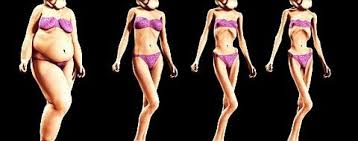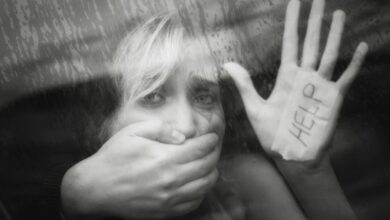5 Questions About Anorexia Nervosa Answered

1. What is Anorexia nervosa?
Anorexia nervosa is a complex eating disorder with three key features:
• refusal to maintain a healthy body weight
• an intense fear of gaining weight
• a distorted body image
There are two types of anorexia:
In the restricting type of anorexia, weight loss is achieved by restricting calories (following drastic diets, fasting, and exercising to excess).
In the purging type of anorexia, weight loss is achieved by vomiting or using laxatives and diuretics.
2. What are the Signs and symptoms of anorexia?
People living with anorexia are constantly hiding their habits which makes it hard at first for friends and family to spot the warning signs.
Anorexic food behavior signs and symptoms:
• Dieting despite being thin – Following a severely restricted diet. Eating only certain low-calorie foods. Banning “bad” foods such as carbohydrates and fats.
• Obsession with calories, fat grams, and nutrition – Reading food labels, measuring and weighing portions, keeping a food diary, reading diet books.
• Pretending to eat or lying about eating – Hiding, playing with, or throwing away food to avoid eating. Making excuses to get out of meals (“I had a huge lunch” or “My stomach isn’t feeling good.”).
• Preoccupation with food – Constantly thinking about food. Cooking for others, collecting recipes, reading food magazines, or making meal plans while eating very little.
• Strange or secretive food rituals – Refusing to eat around others or in public places. Eating in rigid, ritualistic ways (e.g. cutting food “just so”, chewing food and spitting it out, using a specific plate).
Anorexic appearance and body image signs and symptoms:
• Dramatic weight loss – Rapid, drastic weight loss with no medical cause.
• Feeling fat, despite being underweight – You may feel overweight in general or just “too fat” in certain places such as the stomach, hips, or thighs.
• Fixation on body image – Obsessed with weight, body shape, or clothing size. Frequent weigh-ins and concern over tiny fluctuations in weight.
• Harshly critical of appearance – Spending a lot of time in front of the mirror checking for flaws. There’s always something to criticize. You’re never thin enough.
• Denial that you’re too thin – You may deny that your low body weight is a problem, while trying to conceal it (drinking a lot of water before being weighed, wearing baggy or oversized clothes).
Purging signs and symptoms:
• Using diet pills, laxatives, or diuretics – Abusing water pills, herbal appetite suppressants, prescription stimulants, ipecac syrup, and other drugs for weight loss.
• Throwing up after eating – Frequently disappearing after meals or going to the bathroom. May run the water to disguise sounds of vomiting or reappear smelling like mouthwash or mints.
• Compulsive exercising – Following a punishing exercise regimen aimed at burning calories. Exercising through injuries, illness, and bad weather. Working out extra hard after bingeing or eating something “bad.”
3. What are the risks associated with Anorexia?
The risks associated with Anorexia are severe and can be life threatening. They include:
• Anaemia (iron deficiency)
• Compromised immune system (e.g. getting sick more often)
• Intestinal problems (e.g. abdominal pain, constipation, diarrhoea)
• Loss or disturbance of menstruation in girls and women
• Increased risk of infertility in men and women
• Kidney failure
• Osteoporosis– a condition that leads to bones becoming fragile and easily fractured
• Heart problems (e.g. cardiac abnormalities, sudden cardiac arrest)
• Death
4. How can it be treated?
Psychological treatment has been clinically proven to reduce the severity, impact and duration of Anorexia Nervosa. The long-term aims of psychological treatment for Anorexia Nervosa are to reduce risk and to encourage weight gain, normal eating and exercise behaviours, with full psychological and physical recovery as the ultimate goal.
Ideally, the treatment of people with Anorexia Nervosa are managed on an outpatient basis, with psychological treatment and physical monitoring provided by healthcare professionals, who will possess specialised knowledge in eating disorders.
Psychological Treatments
• Behavioural therapy
• Cognitive analytic therapy
• Cognitive behavioural therapy
• Ego-oriented therapy-adolescent focused individual therapy (for children and adolescents)
• Focal psychodynamic therapy
• Family interventions focused explicitly on eating disorders
• Maudsley family-based treatment (for children and adolescents)
• Interpersonal psychotherapy
• Specialist supportive clinical management
Other treatments
Antidepressants (specifically selective serotonin re-uptake inhibitors; e.g. SSRI) or antipsychotics can also be used to treat Anorexia Nervosa.
5. Where can one get help?
Eating Disorders South Africa – EDSA
EDSA strives to provide people with resources and information on eating disorders for those suffering from eating disorders, and trying to help loved ones (especially parents) in search of help.
Telephone: (+27) 12 993 1060
Email: [email protected]





